How to make triple-cooked chips
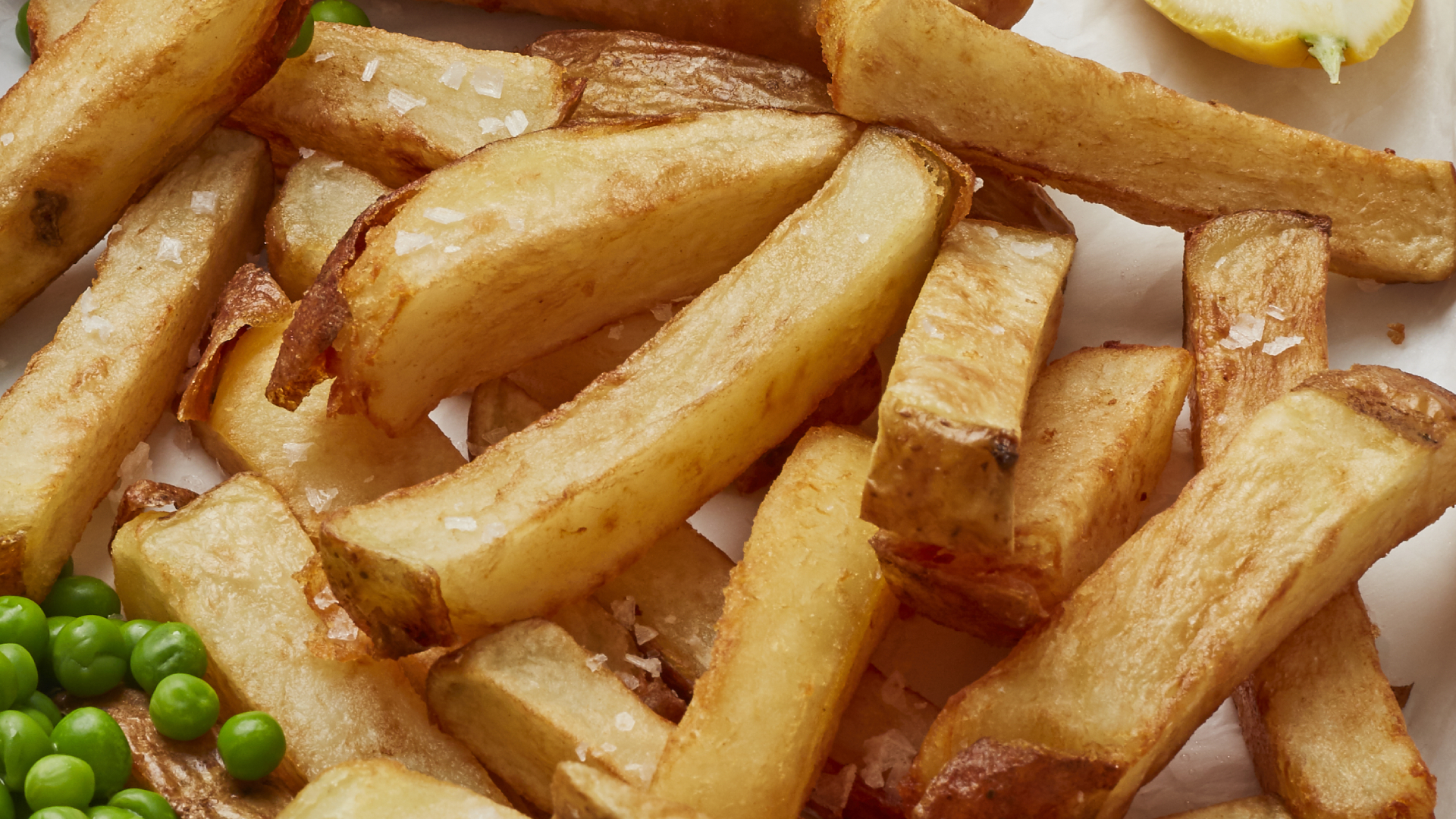

Everything you need to know about making triple-cooked chips including expert advice from chef Chantelle Nicholson.
Triple-cooked chips are the ultimate in fried comfort food. Fluffy and soft on the inside and incredibly crunchy on the outside, triple-cooked chips are much more indulgent than classic chips as they are cooked three times; steamed, blanched, and fried twice.
To make sure we got the best advice on how to triple-cooked chips at home we've teamed up with expert and chef Chantelle Nicholson from Tredwells restaurant in London for her insight in cooking this popular side dish.
Her secret is steaming the spuds before freezing them, then frying them twice. This combination gives the chips the crispiest finish.
In this article we look at the following:
*Best potatoes to use for triple cooked chips *Best oil for deep-frying triple cooked chips *How to make triple cooked chips *How to serve triple cooked chips *Top tips for cooking triple cooked chips *How do you know when the oil is ready to use? *How can you make triple cooked chips healthier? *Can you prepare triple cooked chips in advance?
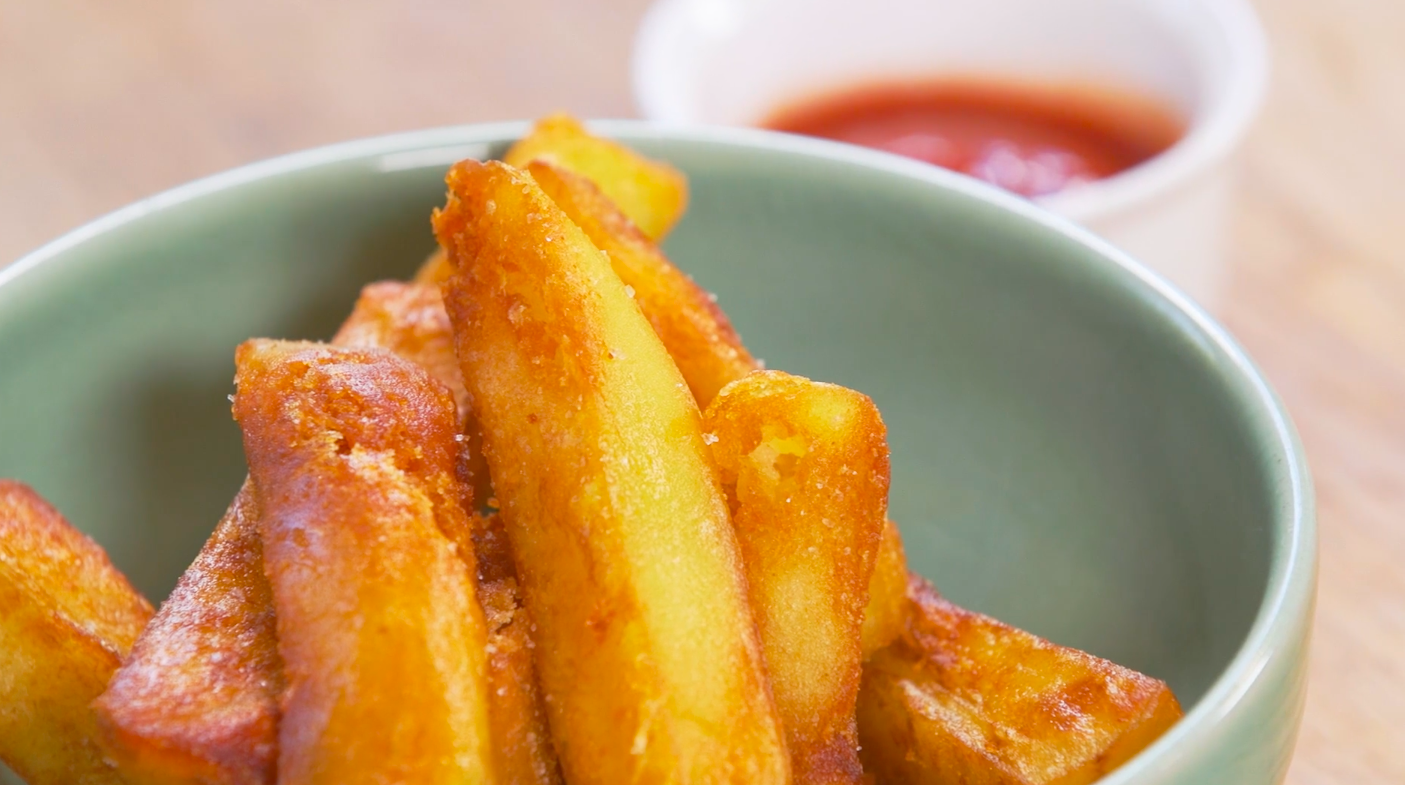
Best potatoes to use for triple cooked chips
Chantelle Nicholson recommends using a great chip potato such as a Maris Piper, King Edward, or Russet potatoes. She advises that you choose a potato that is 'not too starchy and also not too soft' for making triple-cooked chips.
GoodtoKnow Newsletter
Parenting advice, hot topics, best buys and family finance tips delivered straight to your inbox.
Maincrop potatoes such as Maris Piper and King Edward potatoes are good all-round potatoes. Meaning they can be used successfully for mashing, roasting, or frying. They are good for frying because they don’t contain very much moisture. This means they will absorb the oil when fried causing them to be extra crunchy.
Waxy varieties of potatoes are usually too small and contain too much moisture for making chips. We suggest that you select large potatoes when making chips. This will make it easier to cut the potatoes into chunky chips and mean that the chips are easier to handle during cooking. Cutting thick pieces is essential for ensuring that they don’t overcook which may cause the chips to fall apart. Making your triple-cooked chips chunky will also give you more of that fluffy filling that everyone loves so much.
Best oil for deep-frying triple cooked chips
The best oils for deep frying chips are sunflower, rapeseed (vegetable), or groundnut oil. This is because they are relatively cheap and have a high smoke point so can handle the high temperature required for deep frying well. We have opted for rapeseed oil (vegetable).
One oil that doesn't work for deep frying, however, is olive oil, as it has a lower smoke point which is not hot enough for deep frying.
Over time oil degrades, so it's best to only heat oil for frying a maximum of 10 times before discarding it. Used oil can turn rancid, so unless using regularly do not keep the oil that you have used for frying.
How to make triple cooked chips
Ingredients
- 4 large potatoes
- vegetable oil, for deep frying
- table salt
How to make triple cooked chips: Step 1
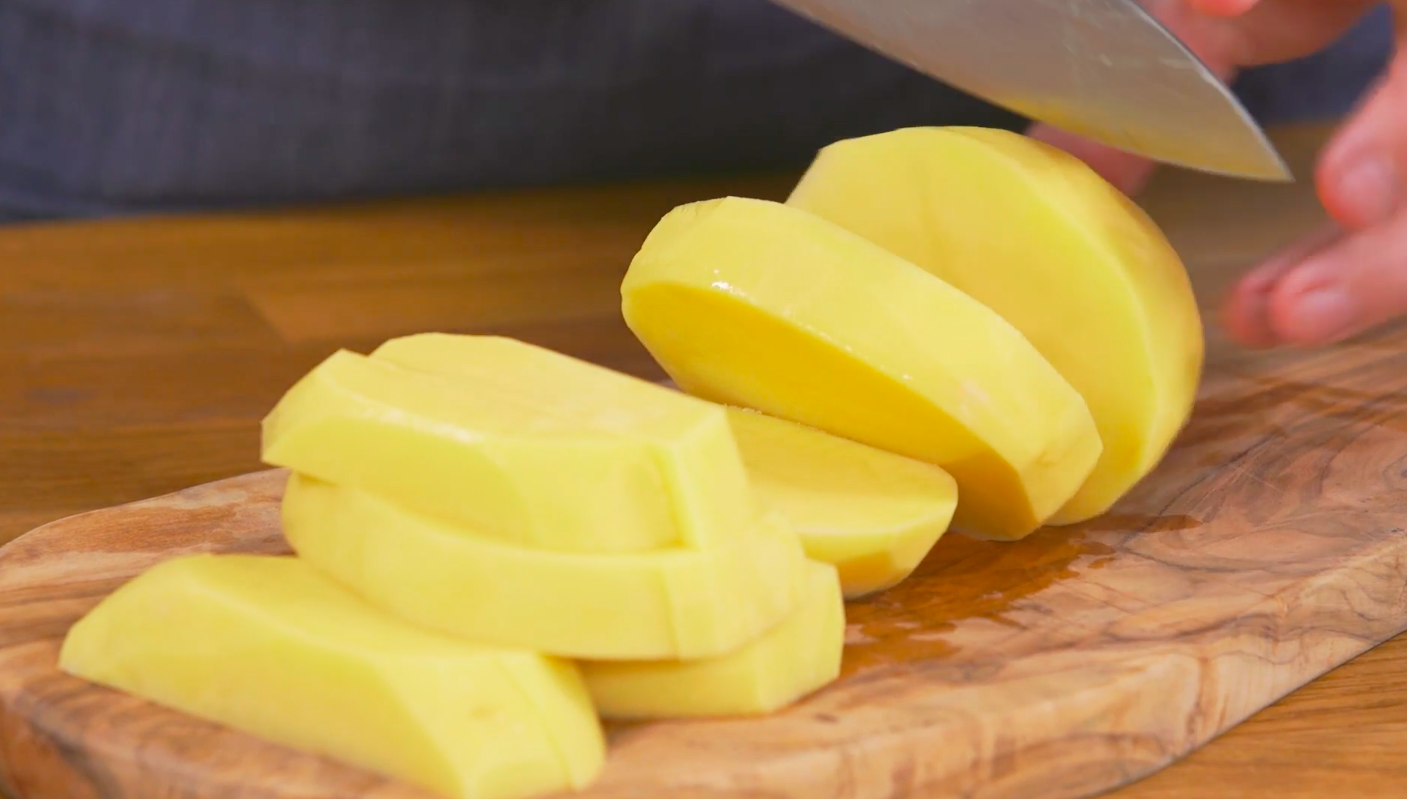
Peel the potatoes and cut them into 14mm x 14mm chips. Make sure that they are an even thickness so they take the same time to cook. Rince the cut potato to remove the starch.
How to make triple cooked chips: Step 2
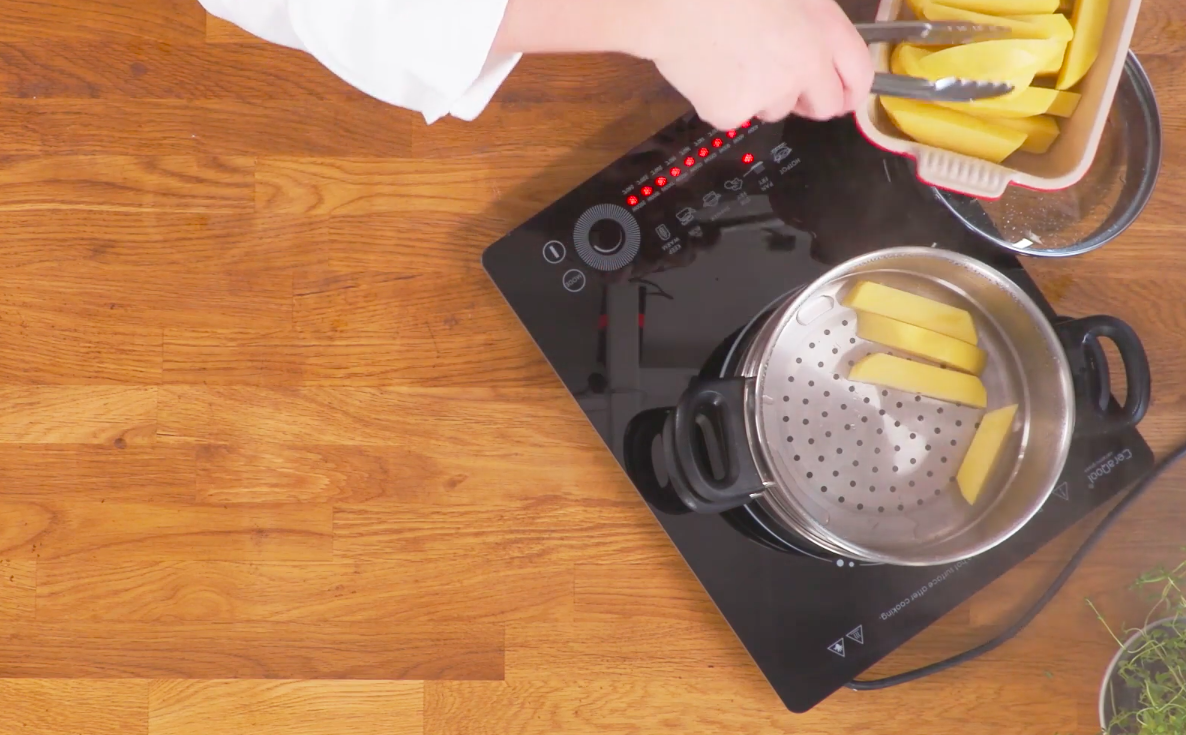
Steam the chips for 12-15 mins until soft. Make sure they are just a single layer so they cook evenly. When a knife inserted goes through without any resistance they are ready. Drain and allow to cool. Place in the freezer until solid.
How to make triple cooked chips: Step 3
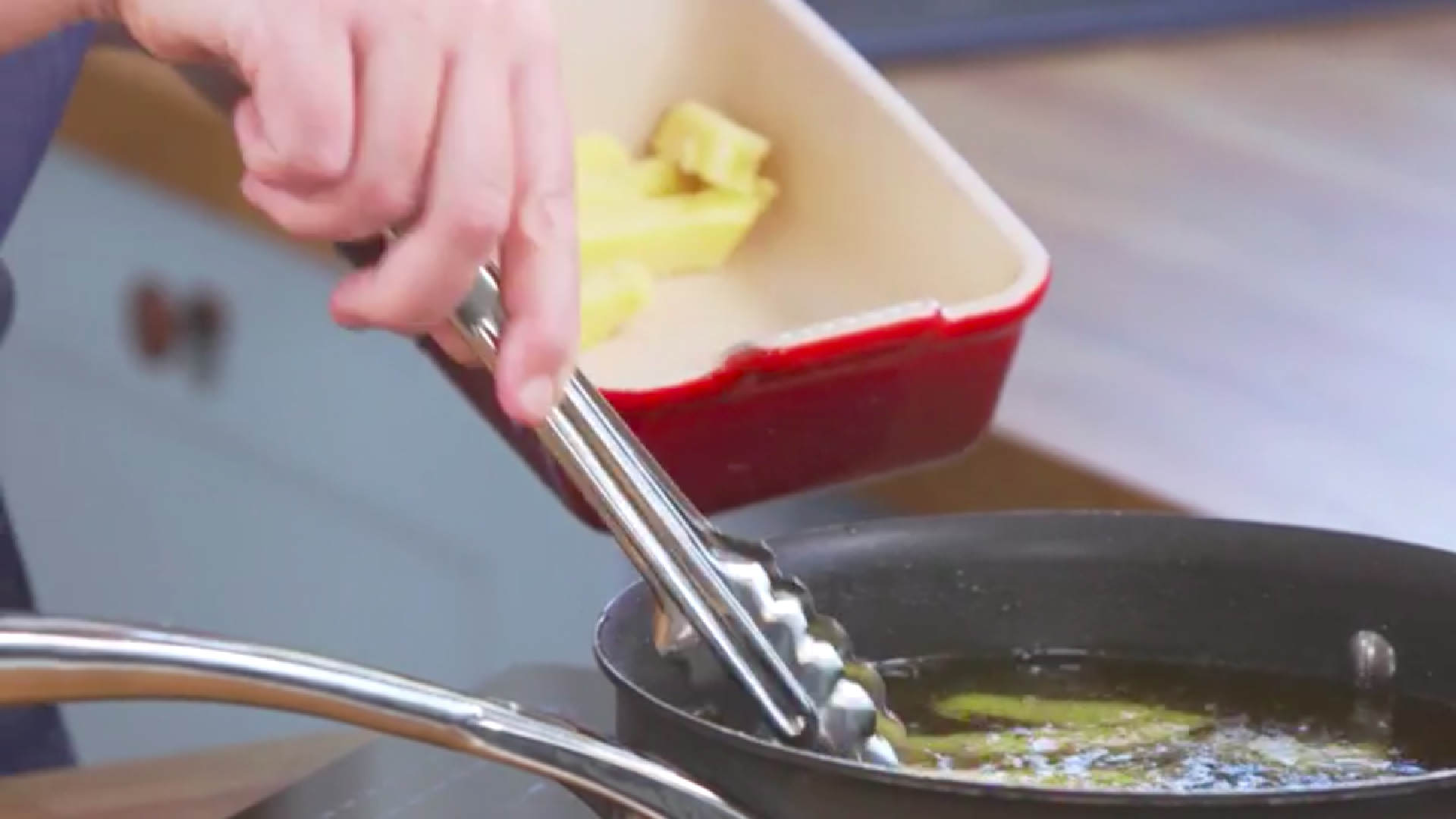
Heat the oil to 150C. Blanch the frozen chips for 8-10 mins until golden. Be careful with the hot oil. Chill.
How to make triple cooked chips: Step 4
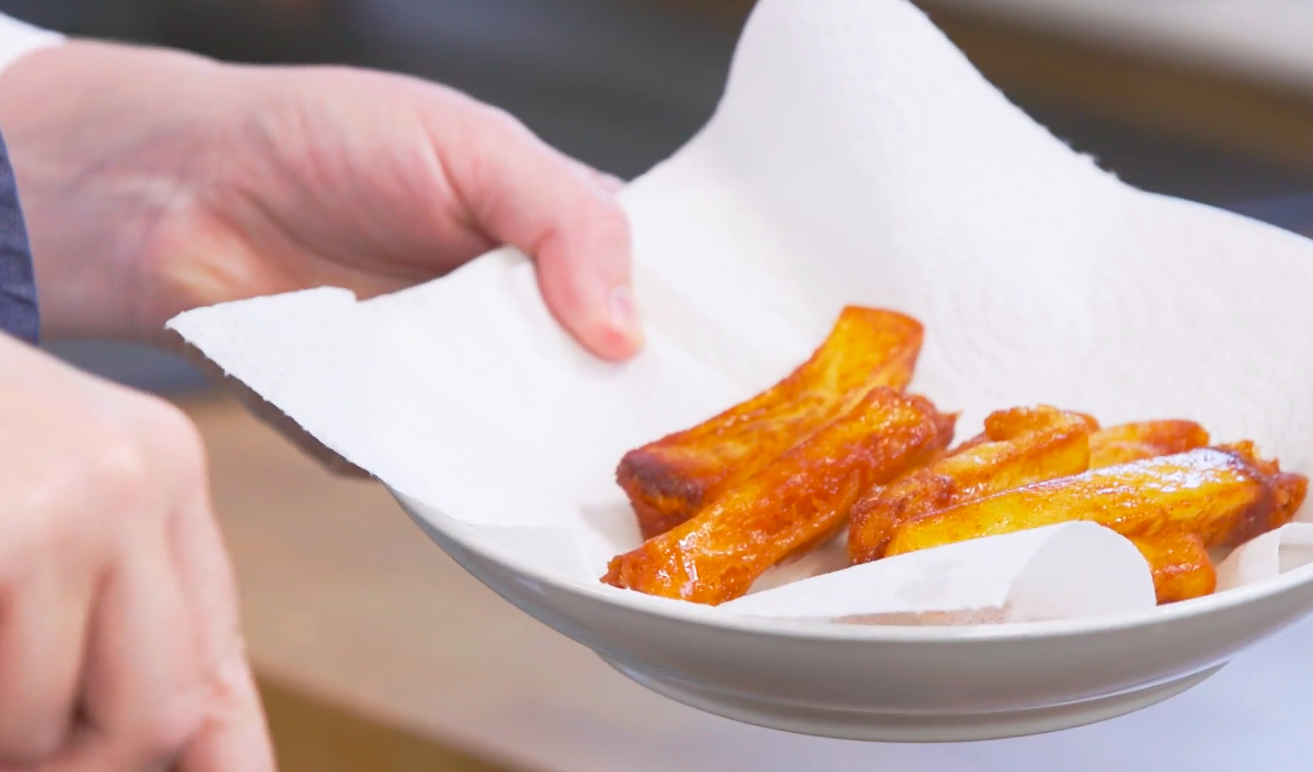
Heat the oil to 180C and fry for 4 mins until golden. Remove from the fryer and place on absorbent paper. Season with salt while the chips are hot.
How to serve triple cooked chips
If you like, you can dress these triple-cooked chips up in any way you fancy – try sprinkling with Cajun spice mix after they’ve been cooked, garlic salt, or even giving them a good grating of Parmesan at the end of cooking.
Serve with homemade burgers or beer-battered fish for a real deep-fried treat. These chips are so flavorsome they could be served purely on their own with a side salad or dip. We'd recommend homemade aioli.
The method above serves four people, so make sure to scale everything up or down depending on how many people you’re feeding. If you want to get ahead you can steam and freeze these chips up to a week before you want to fry them.
They’ll keep fine in the freezer, and that will cut out two steps for you on the day you want to have them.
Top tips for cooking triple cooked chips
It's best to serve chips warm straight after cooking. But if you have leftovers these can be stored in the fridge for a couple of days and reheated in the oven.
How do you know when the oil is ready to use?
Make sure that the oil is at the correct temperature before adding the chips. The best way to do this is to use a thermometer or an electric deep fryer with a temperature gauge.
Be extremely careful with the hot oil. Never leave the pan. If there is a fire caused by the hot oil do not attempt to put it out with water or move the pan. Instead, turn off the heat and call the fire brigade. To be on the safe side you could buy a fire blanket. This can help to extinguish a chip pan fire.
How can you make triple-cooked chips healthier?
For making slightly healthier chips it's better to bake the chips in the oven as they will absorb less fatty oil. Try our recipe for homemade chips that don't require deep-fried.
Can you prepare triple-cooked chips in advance?
You can partly prepare these triple-cooked chips in advance. If you steam and freeze them they can be left in the freezer for a week. You can take them straight from the freezer before deep frying. If you do this just make sure not to overlap the chips before freezing as they will stick together.
We like to freeze them flat before transferring frozen into a smaller container. This way they don't stick together when they freeze.

Rose Fooks is Deputy Food Editor at Future Publishing, creating recipes, reviewing products and writing food features for a range of lifestyle and home titles including GoodTo and Woman&Home. Before joining the team, Rose obtained a Diplome de Patisserie and Culinary Management at London’s Le Cordon Bleu. Going on to work in professional kitchens at The Delaunay and Zedel.